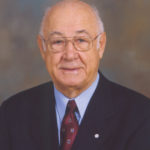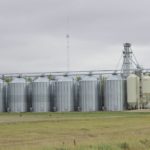
Tag Archives University of Manitoba

Manitoba sees changing erosion landscape
Manitoba may not have a lot of topography but Dr. David Lobb says it’s enough for tillage erosion, especially as soybeans expand

Premium canola oil offers distinct flavours
Three new cold-pressed canola oils each have unique flavour and fragrance characteristics particular to the farm where the seed was grown

Making bread — and maybe history too
The first loaves of bread made from Kernza have been gobbled up in Manitoba

New risk-management research
Federal government invests nearly $1 million in the hope of developing better risk management programs for forage producers

Local control key to better resource management
Brady Deaton, the University of Manitoba’s 9th annual Kraft Lecturer, says the Indian Act prevents First Nations from taking action to improve their citizens’ well-being
Manitoba’s ‘climate and green’ plan good policy, smart politics
It's often easier and safer to oppose something than to come up with a plan and implement it

Manitoba Organic Alliance names agronomist
Katherine Stanley will take on the term position over the next year

Celebrated Canadian cereal chemist Walter Bushuk passes away
The son of immigrant farmers was internationally recognized for his research into wheat quality

Legal opinion backs Pallister’s approach to carbon pricing
Manitoba’s ‘Green Plan’ to cut emissions will be out soon and the premier says he wants Manitobans’ feedback

What’s the word on night-only aeration?
Research urges farmers to go nocturnal when it comes to aeration and natural drying


